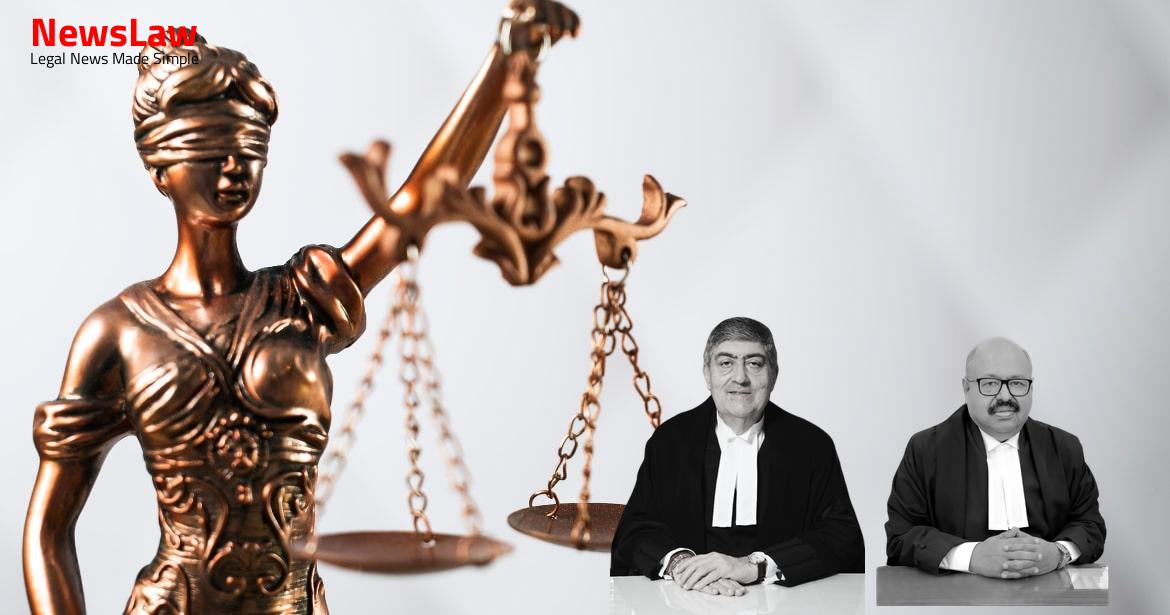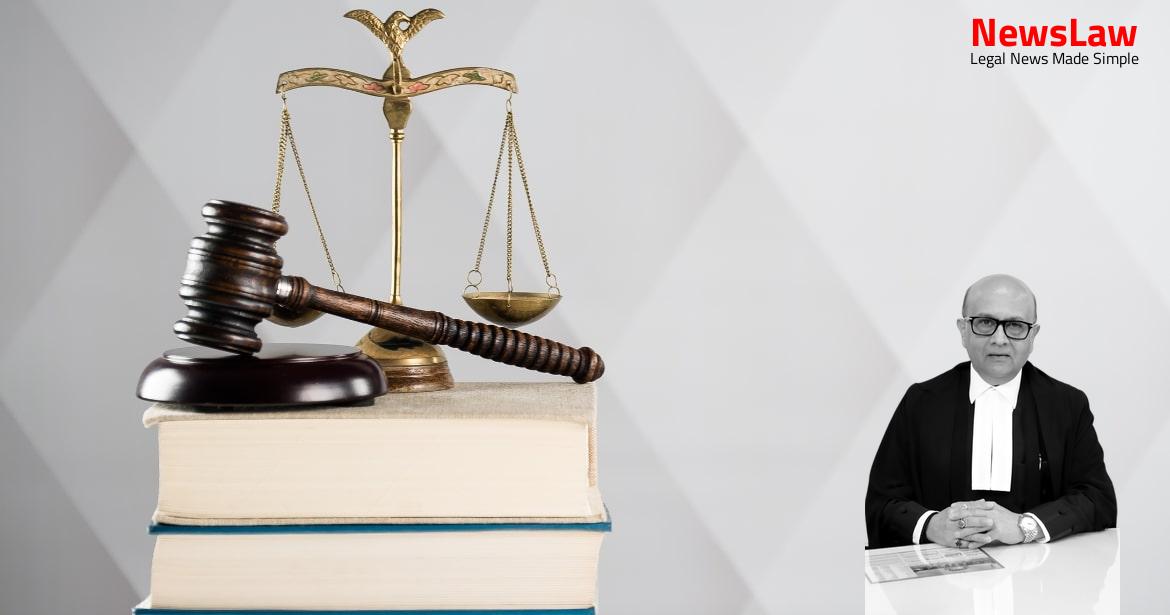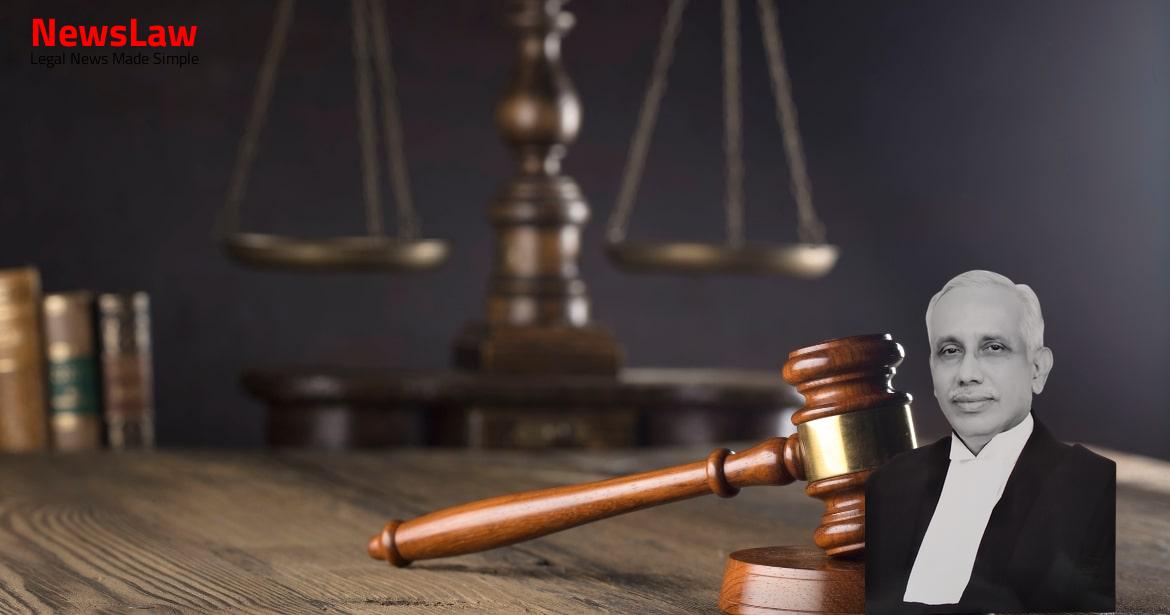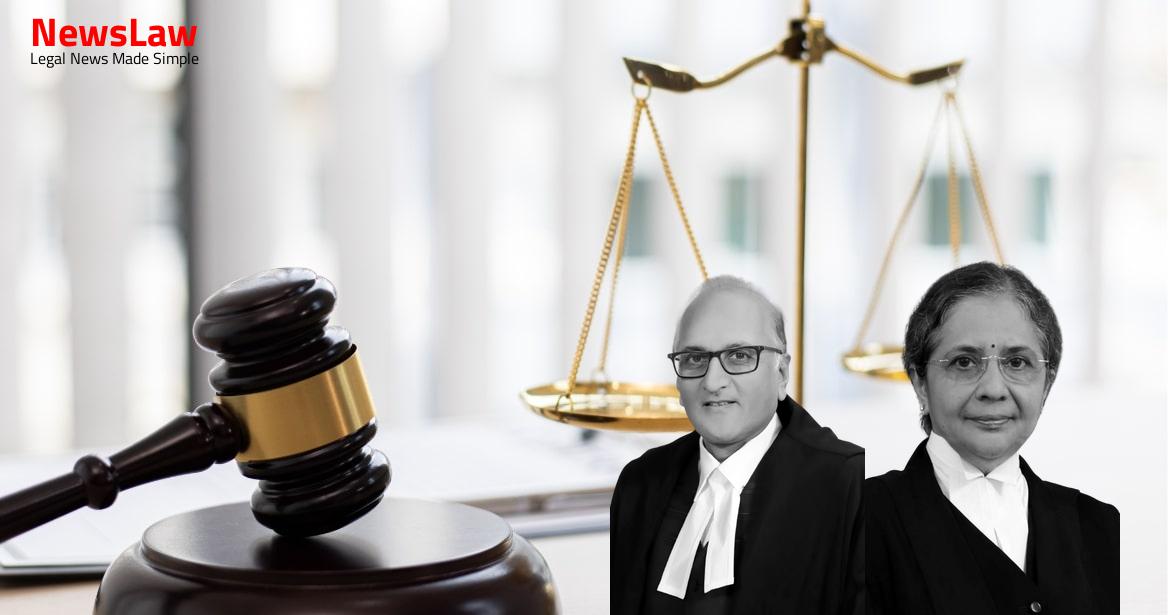The legal case delves into the significance of raising objections at the proper time during court proceedings. The court’s meticulous analysis on the admissibility of documents and objections highlights the importance of procedural rules for a just trial. Understanding the nuances of when and how to object can impact the outcome of a case, as evidenced by the court’s findings on the timing of objections in this particular legal matter.
Facts
- The trial Court analyzed the evidence of the handwriting expert, attesting witness, and scribe of the cancellation deed to determine the genuineness of the cancellation deed.
- The expert compared thumb impressions from different documents and concluded that they all matched.
- The death certificate did not indicate that the testator was suffering from paralysis, which was used to reject the argument that he was incapable of cancelling the Will before his death.
- Attempts for amicable settlement were made during the proceedings, but were unsuccessful.
- The testator cancelled the concerned Will by a registered deed on 02.02.1963 (Exbt. C) himself.
- The applicant claims the testator was in poor health and paralytic, unable to attend the Sub-Registrar’s office to execute the cancellation deed (Ext. ‘C’).
- The executant of the cancelled Will died on 21.08.1963, leaving behind his sister, nephew, and the probate applicant.
- Khedaran Kuer, claiming to be the widow of the testator’s nephew, opposed the applicant in the probate case.
- The First Additional District Judge concluded that the Will favoring the applicant is genuine.
- The applicant claims the testator’s wife had passed away, and as he was issueless, he bequeathed his property in Bihar to the respondent Sarjug Singh in the Will (Ext.2).
- Sarjug Singh filed a First Appeal before the High Court against the probate case.
- Objectors claimed the Will favoring Sarjug Singh was revoked and cancelled by a registered deed on 02.02.1963 (Exbt. C).
- Objection was also filed by Raj Bansi Kuer, claiming to be the second wife and widow of the testator, in the probate proceeding initiated by Sarjug Singh.
- Objectors argued that Raj Bansi Kuer was in possession of the late testator’s assets and had sold several plots of land to the appellants.
- Eight vendees who purchased land from Raj Bansi Kuer appeared in the probate proceedings and supported the objectors’ case.
- While the validity of the Will in favor of the applicant Sarjug Singh was not seriously challenged, the objectors pleaded their case.
- During the pendency of the appeal, Sarjug Singh passed away on 21.03.2002, but no application was filed for substitution of the deceased appellant.
Also Read: Insurance Claim Repudiation due to Fire Incident: Court’s Legal Analysis
Arguments
- Objection as to the mode of proof must be taken when the document is tendered and before it is marked as an exhibit.
- Objection cannot be taken in appeal.
- The defendants appealed to His Majesty-in-Council in the case of Padman v. Hanwanta.
- An argument was made that a registered copy of the Will of 1898 was admitted as evidence without sufficient foundation being laid.
- No objection was raised in the first court against the copy obtained from the Registrar’s office being submitted as evidence.
- If an objection was made at the time, the District Judge may have rectified the deficiency.
- The Privy Council found no substance in the contention that the copy of the will was improperly admitted.
Analysis
- In the present case, the probate applicant failed to raise any objection regarding the mode of proof of the cancellation deed before the Trial Court.
- The probate applicant did not object to the production of the certified copy of the cancellation deed nor insisted on the production of the original deed.
- The High Court did not give due weight to the evidence of witnesses who testified to the genuineness of the cancellation deed.
- Inference was made on the testator’s impersonation at the Sub-Registrar’s Office despite no objection being raised during the trial.
- The High Court erroneously drew adverse inferences against the objectors based on the testator’s health condition and failure to produce the original deed.
- The Ext. B Report of the handwriting expert indicated the thumb impression was genuine and consistent with other documents, marked without objection in the trial Court.
- Failure to object to the admission of the cancellation deed as evidence in the trial Court was considered fatal, allowing the presumption of genuineness to stand.
- No cross-examination or suggestion was made regarding the testator’s impersonation during the registration of the cancellation deed.
- The parties agreed to proceed with the case based on its legal merits, despite issues regarding deceased parties and late substitutions of legal heirs.
- Objection as to the mode of proof should be raised when the evidence is tendered, not at a later stage.
- Once a document is admitted in evidence and marked as an exhibit, objections to its admissibility or the mode of proving it cannot be raised later.
- Such objections can fall within procedural law and may be waived.
- The objection must be taken before the document is marked as an exhibit in court.
- Raising objections at the appellate stage for the first time can prejudice the party who produced the document without protest earlier.
- Allowing objections at the appellate stage may put the party at a serious disadvantage and is inconsistent with the rule of fair play.
- The High Court erred by disregarding material evidence and disbelieving the Cancellation Deed without considering the failure to raise objections at trial.
- The duty to produce the original deed of cancellation cannot be imposed when no objection was raised earlier.
- The reliance on previous cases where authenticity was questioned is unjustified as the present case involves a certified copy of a registered cancellation deed that was not objected to.
- The crucial test is whether raising an objection at the right time would have allowed for the defect to be cured and the proper mode of proof to be used.
- The plea of mode of proof was not raised before the trial court.
- The High Court’s reliance on a specific case to support the applicant was deemed unacceptable.
- The Trial Court was correct in holding that Rajendra was medically fit and had cancelled the Will himself.
- Evidences of the relevant witnesses have withstood scrutiny of the Trial Court.
- The evidences of the witnesses have remained unshaken.
- The omission of the probate applicants to raise objections regarding the mode of proof before the trial court favored the objectors.
Decision
- The present appeal sets aside the impugned order of the High Court.
- The judgment of the First Additional District Judge Chapra is restored.
- No order is given as to costs.
Case Title: LACHHMI NARAIN SINGH (D) THR. LRS.. Vs. SARJUG SINGH (D) THR.LRS. (2021 INSC 406)
Case Number: C.A. No.-005823-005823 / 2011



